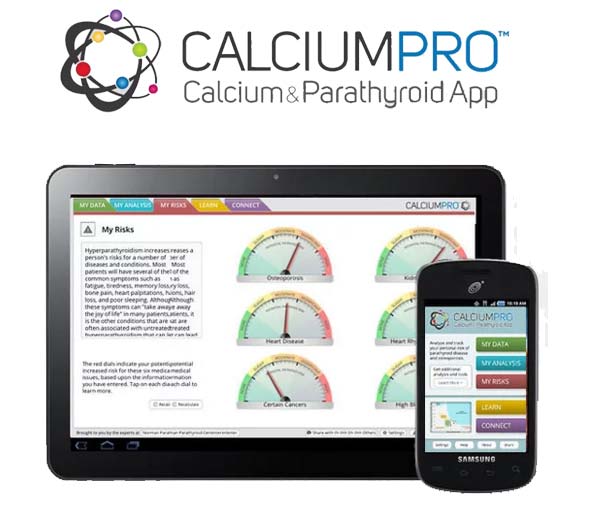After the Operation - Frequently Asked Questions
We have compiled a list of the more common questions asked postoperatively on this page. Many questions are answered on the postop instruction sheet that you received in the hospital, which is also available here. If you have an urgent medical issue, please call your surgeon. The doctors’ cell phone numbers are all available on the postop instruction sheet.
Click on any question below to read the full answer
- My fingers and my face feel weird, but it doesn’t seem exactly like what I read about the symptoms of low calcium. Is this low calcium?
- What is the maximum amount of calcium that I can take? Am I going to overdose?
- Is there a best time to take the calcium and Vitamin D? Can I take it with my other medications?
- Does it matter what multivitamin I take?
- It still feels weird/is a little sore when I swallow. It feels like something is stuck in my throat. Is this normal?
- There is still some swelling around the incision. Is this normal? When will that go away?
- I have some bruising around the incision and extending down my neck. Is this dangerous?
- Will all this calcium make me constipated? What should I do if I’m constipated postop? What if I’m having loose stools?
- My bone pain went away after the operation, but it’s been a few days and my bones are starting to hurt again. What’s going on?
- It feels like my muscles are cramping up – is this low calcium?
- I'm coughing up a lot of phlegm. Is this normal?
- It’s been a few days since my operation and I haven’t noticed significant improvements. What’s wrong?
- Are metal clips used in the operation? Will this affect my ability to get an MRI?
My fingers and my face feel weird, but it doesn’t seem exactly like what I read about the symptoms of low calcium. Is this low calcium?
Symptoms of low calcium can be tricky, and don’t always fit the textbook descriptions. While the most common sensation is described as numbness or tingling, other sensations such as vibrating, trembling, and just an odd feeling of the skin can also occur. Symptoms of low calcium usually start around 2 or 3 days after the parathyroid operation, and usually involve the fingers and the face first. If it is 3 days after your operation, and you have a new numbness-like sensation in your hands, you can assume it is due to low calcium, and that you need to take more. Start with 2 extra Citracal.
Note that the symptoms of low calcium usually start two or three days after parathyroid surgery. It is rare for them to start 2 weeks or more after surgery. So if you had surgery a month ago and now notice some new numbness in your fingers, it is probably NOT low calcium.
What is the maximum amount of calcium that I can take? Am I going to overdose?
If you have been feeling low calcium and have started taking more calcium, you are probably wondering what the limit is. If you truly have low calcium, then there is no absolute limit – you need to take as much as you need. We want you to give us a call when you get to 10 pills, though. We want to make sure that it is really low calcium that is causing your symptoms, and not something else. We also want to guide you through how many pills to take each day and how to taper off that high dose once your normal parathyroids start kicking in.Is there a best time to take the calcium and Vitamin D? Can I take it with my other medications?
Your intestines can only absorb so much calcium at a time, which is why we recommend spreading the calcium throughout the day. When you are down to two pills daily, you can take these together. Calcium can be taken with other medications, with a few exceptions, most notably thyroid hormone.
***Do not take calcium at the same time as thyroid hormone. If you take levothyroxine, Synthroid, Armour, or any other form of thyroid hormone, wait at least 4 hours before or after taking the hormone to take calcium. Taking calcium at the same time will mean that your body won’t receive the full dose of the hormone. It’s ok if you took the calcium close to your hormone dose in the first week of the operation, but long-term be sure to separate these by at least 4 hours.
Other medications that should not be taken at the same time as calcium are: ciprofloxacin or other “-floxacin” antibiotic (wait 1 hour), tetracycline antibiotics (wait 4 hours), bisphosphonates such as alendronate (Fosamax) or risedronate (Actonel) (wait 1 hour). This list is not definitive, and if you have questions about any of your medications and its interaction with calcium, please ask your physician.
Does it matter what multivitamin I take?
No. You can take any multivitamin.If you have significant bone loss, you should also take a daily magnesium supplement. Magnesium is important for calcium metabolism and bone remodeling. There are lots of different forms of magnesium out there, and any of them will work. Note that magnesium has a laxative effect, and certain forms (e.g. magnesium citrate) are more often used to treat constipation. If you buy a magnesium that is meant to treat constipation (most often liquid magnesium citrate), the dosage will be higher than what you need, and will produce loose bowel movements. We usually recommend taking either magnesium oxide or magnesium malate, which may also help with muscle cramps. Adults should get about 400 mg a day of magnesium. If you are requiring lots of calcium postoperatively, we recommend increasing that to 800 mg a day while you are needing the higher doses of calcium.
It still feels weird/is a little sore when I swallow. It feels like something is stuck in my throat. Is this normal?
Yes. The muscles in your neck are healing, and during that time things can feel sore or “tight” when you swallow. It will get better. Sometimes swallowing can feel “different” for weeks after the operation – that is normal, and will improve as everything heals. Remember that even if your incision looks perfect on the outside, there is still a lot of healing going on inside your neck for weeks and months after the operation (which is true for every operation, anywhere in the body).There is still some swelling around the incision. Is this normal? When will that go away?
It’s very normal to have swelling around the incision, often for a few weeks. The incision also may feel lumpy or and the skin may feel hard – this is all normal and will go away as everything heals.I have some bruising around the incision and extending down my neck. Is this dangerous?
Bruising around the incision is due to a small amount of bleeding right under the skin. It is normal and will heal just like any other bruise. The bruise can even start to move down onto your chest over a few days – this does not mean that you are still bleeding. It is just the effect of gravity. It doesn’t look pretty, but it doesn’t affect your healing and it is not dangerous.Will all this calcium make me constipated? What should I do if I’m constipated postop? What if I’m having loose stools?
We recommend Citracal because it tends to be well tolerated and the type of calcium in it (calcium citrate) does not normally cause constipation, unlike other forms of calcium. Calcium carbonate, the most common calcium supplement (in TUMS, Oscal, etc) very frequently causes constipation. Citracal can sometimes do the opposite – occasionally it causes loose stools or diarrhea. And even though it doesn't normally do so, Citracal can occasionally cause constipation. Some people get bloating or discomfort. If you are having loose stools while taking Citracal, try taking a different form of calcium supplement, such as Oscal D (calcium carbonate and Vitamin D).
If you are constipated postop, normally this is due to anesthesia from the operation, and will get better on its own. You can take over-the-counter laxatives or stool softeners to help get things moving.
My bone pain went away after the operation, but it’s been a few days and my bones are starting to hurt again. What’s going on?
While most people with bone pain experience an immediate improvement following parathyroidectomy, a few patients notice that some pain returns within a week or two. The reason for this is not clear, but is likely a result of bone remodeling that occurs after parathyroid surgery. Over time, this remodeling leads to improved bone density, but may cause discomfort. We recommend that you continue calcium and Vitamin D supplementation, and if you have not done so, start taking a daily magnesium supplement, which is important for calcium metabolism and bone health. Your bones will be much healthier with the parathyroid tumor gone – this pain is temporary and usually resolves in a few months.As mentioned above, there are lots of different forms of magnesium out there, and any of them will work. We usually recommend taking either magnesium oxide or magnesium malate, which may also help with muscle cramps. Adults should get about 400 mg a day of magnesium. If you are requiring lots of calcium postoperatively, we recommend increasing that to 800 mg a day while you are needing the higher doses of calcium.
It feels like my muscles are cramping up – is this low calcium?
Muscle cramping can be from low calcium, particularly if it is associated with the “classic” symptoms of numbness or tingling in the hands or face. In this case, taking more calcium will help. The timing of the cramping helps here. If you are within 2 weeks of your operation and experiencing new cramping, it is likely low calcium. If you are having prolonged muscle cramping or muscle spasms in your wrists or hands, you should take more calcium immediately and let your surgeon know, as this can be a sign of very low calcium. More general muscle achiness is less likely to be due to low calcium if you aren’t also having symptoms of numbness and tingling. You should start taking a magnesium malate supplement if you are having cramps – this often helps even without taking more calcium. You can also try taking an extra 2 Citracal to see if that helps, but it may not, in which case you should not continue to take more calcium without speaking with your surgeon.
If you are having muscle cramps, we recommend starting a magnesium supplement, in addition to your calcium and Vitamin D. Magnesium is very important for calcium metabolism, and helps with postop symptoms. For muscle cramps, we recommend magnesium malate. Adults should get about 400 mg a day of magnesium. If you are requiring lots of calcium postoperatively, we recommend increasing that to 800 mg a day while you are needing the higher doses of calcium.
I'm couging up a lot of phlegm. Is this normal?
Yes. After the procedure, you might notice that you need to cough up extra mucus for a few days. This is normal after an operation. If it is not improving or is getting worse after several days, consult your physician.
It’s been a few days since my operation and I haven’t noticed significant improvements. What’s wrong?
Nothing. As mentioned above, some people feel amazing in the days after their operation. But others don’t, and that’s ok. Your body has to adjust to a large shift in hormone and calcium levels, and that is not always pleasant. Over time you will feel the benefits of parathyroidectomy. It’s fine if you can’t feel the benefit in the first days or weeks. You will get there.
Are metal clips used in the operation? Will this affect my ability to get an MRI?
We use very small titanium surgical clips during the operation, to control blood vessels. This is standard. These clips are perfectly safe, and will not activate a metal detector. They are safe for MRI scanning.




